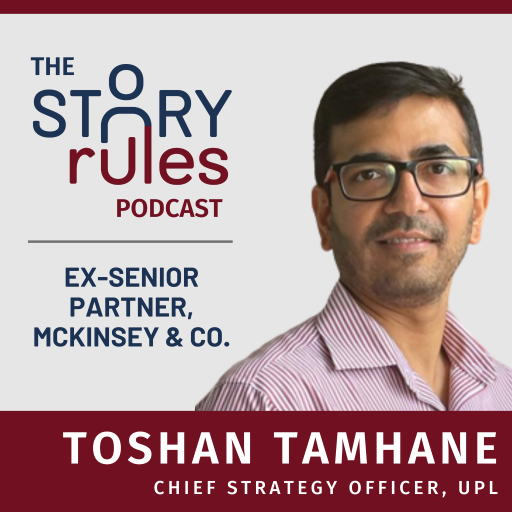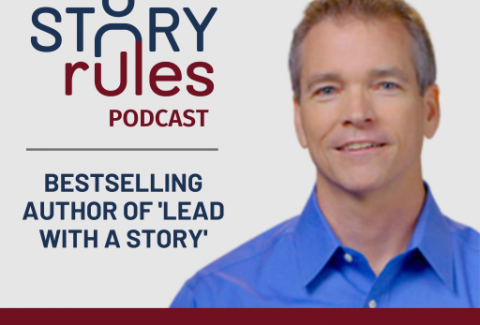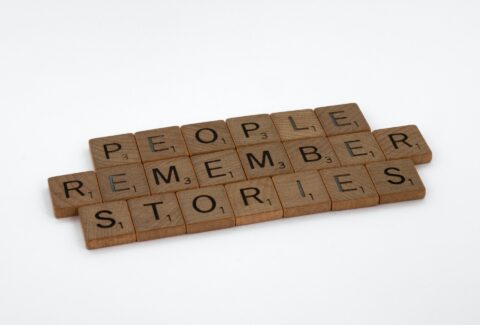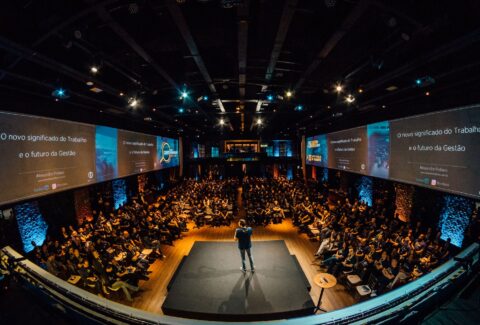E19: Toshan Tamhane – Lessons from Mckinsey, Meetings and Marathons!
I’m excited to release the next episode of my podcast – with Toshan Tamhane, currently Chief Strategy Officer at UPL and ex-Senior Partner at Mckinsey and Co.
In storytelling, clarity of communication is a key goal. And one firm which has exemplified that in business communication is Mckinsey. After all, this is the firm that gave birth to the Pyramid Principle (through Barbara Minto) – a tool that I teach regularly as a part of my courses.
I was always keen to speak to a senior leader from Mckinsey about how they view the art and craft of storytelling – and was I lucky to have the opportunity to interview Toshan.
Toshan has spent 18+ years at Mckinsey across 55+ countries advising leading companies and individuals. Currently, apart from his role as CSO at UPL Ltd, he is also an active angel investor and avid adventure enthusiast.
Across these years, Toshan has had a ringside view of several high-stakes communication events with senior stakeholders – both as a presenter and now mainly as a reviewer. I thought it would be great to tap into his vast experience and get his insights on the best practices for storytelling at work.
In the conversation, we go through a wide range of topics – Toshan’s reflections from his IIM-Ahmedabad years, the lessons from Mckinsey, his ideas for improving business review meetings, his use of relatable analogies and his insane curiosity for deep conversations.
I should reveal here that Toshan happens to be a batchmate from my graduation college – the Podar College of Commerce and Economics in Mumbai.
He was always a prodigious talent since early days, and also known for his drive and clarity.
It was great reconnecting with Toshan after almost 2 decades… and I learnt a lot from this conversation. I’m sure you will too.
As always, I’m sharing some some lightly-edited extracts from the conversation – tagged under ‘the 3Ps’ – the Personal, Philosophical and the Practical (although with him, you’d find a lot of overlap between the three buckets!):
1. Personal:
a. Reading a variety of books and reflecting
Toshan: …one of the things is that I’m always reading a lot of books like stories, biographies; Even now, I have 7 books in front of me and I’m sure that when I read them, I’ll keep assimilating (information). Like, “This makes sense. Let me try and link something to it,” which happens subconsciously. When I actually want to make a point, I will figure it out and say, “This is how I should be talking about it to make people remember it.”
Ravi: A tactical question on that: When you read something and it triggers a thought about something you’re working on, do you then stop reading and note it down somewhere? Or do you just store it mentally?
Toshan: I just store it, or if I am reflecting on a point and something comes up…for example, I have this book right now called The Escape Manifesto. It has this phenomenal first paragraph, “All our life we jump through hoops. Often without asking why. It’s easy to feel stuck – a small cog in a big machine. It doesn’t have to be like this. Don’t waste your life living someone else’s.” it’s a very powerful thing. I will keep thinking about it; cog in a wheel…am I living someone else’s life? If it makes me pause, I will keep thinking about it for some more time. When I am running or doing something else it will be at the back of my mind, saying, “Am I living someone else’s life? Am I a cog?” I keep visualizing the cog, the wheels turning, then it will stick. Then, I will remember the book. I will remember the amazing things the book is telling me, and so on. It’s linking one thing to another, and it stays.
2. The Philosophical:
a. Be intensely curious – insights are waiting to be discovered in the most unlikely of places
Toshan is innately, intensely curious as a person and has the ability to ask questions which can open up new insights from the most unlikely of places – for instance a waiter, an Uber driver and a liftman!
Ravi: I remember reading on your LinkedIn introduction that you try to have 52 conversations – one a week! How do you find the time to do this?!
Toshan: I think the issue is not about the time. A meaningful conversation can happen with anyone. I’ll give you a couple of examples. I was at a French restaurant, and the guy served me a drink and he had a leaf on top. I asked him, “Why do you put this leaf on top? I’m going to take it out and keep it aside. I’m going to drink the drink. If it was lemon inside, I understand. If it was an apple inside a Sangria, I understand.” And then he went on to explain how the flavour and aesthetics work, and we went on to discuss the topic of molecular gastronomy. He said that food is not consumed only in one sense, which is taste. Your brain starts liking it (multidimensionally). Smell is one; sight; touch. He said French cuisine is not all about the taste. Taste is just one aspect of it. You need to make sure that the patron is involved in it. He went on to tell me how different items are done. I thought, wow. There is a presentation dimension; there is a story behind a dish, he was saying how this comes from here and that from there, so on.
I once asked an Uber driver to tell me about his 5 most interesting rides. The guy told me about a drug bust. I couldn’t believe him. He told me about the area and how he took an undercover cop (as a client) – these are things you only see in movies! I thought, (he’s just an) Uber guy, (but he said), “there’s so many interesting things I can tell you about.”
Some of the most interesting conversations happen (when you talk to seemingly ordinary strangers.) I asked a liftman once, as to what goes on in the lift. He said, “You won’t believe the amount of things people talk about in the lift. They just assume the liftman is invisible.”
b. Use analogies to make ideas sticky
Toshan uses a memorable sportsmen-earnings analogy to make a point of how “Where you play” matters more than “How you play”:
Toshan: (Let’s take the) point that ‘where to play in life is far more important than how to play’. The best airline will be nowhere close to the bottom decile pharma companies. Where to play matters. Your income generation is a function of which profession you are in, and then how good you are in that profession. People intuitively get this, but (something is still lacking). I had first looked at this analogy when I’d said “How much does Roger Federer earn?” and in those days, he’d earn 50 million dollars as prize money and endorsement income. Then (consider), “Why does Federer earn so much?” Of course, because he’s a great Tennis player!
That “great Tennis player” mixes up two very important things: A – he’s a Tennis player, and B – he’s great at Tennis. How do you decipher the split between the two? It is analytically possible. Let us take the average income of the top person in the next five racket sports. You don’t count golf as a racket sport, but consider Table Tennis, Badminton, Squash, Lacrosse, and you see how much those people earn. Let’s say it’s 900 thousand dollars to a million, in those days. They said, “What’s the gap between a million and 50 million?” – just for the ease of mathematics– “what is that gap explained by?” and you say, “but Federer is so well-known! That’s why he earns so much.” But you cannot explain this gap unless you introduce a third variable.
Let’s look at Juan del Potro, who was the number 10 ranked Tennis player at that time. You said, “How much did del Potro earn?” – del Potro earned 15 million dollars.
The fact that Federer is great at Tennis, he’s so phenomenal at Tennis, people from all around the world come to watch him play Tennis, is only 3.2 times valuable. Because that’s the difference between del Potro and Federer. 15 million versus 50 million. But, more than 15 times is explained between what the number one guy of the other sports (earns) and what Juan del Potro is earning. The number one Badminton player – does he or she practice less? Do they have less discipline and commitment? Are they taking less efforts to become the best at what they do? No. It’s just that they are playing Badminton. Not many people like to watch Badminton; it may not be so popular. There could be many reasons. But you see that the 15 times earning potential is not because Federer is a great player. It’s because he plays Tennis. Only 3 times is because he’s good at Tennis. That’s the analogy.
He then wraps it up with this gem:
Toshan: The power of analogies is always to make it memorable… to make the points stick. Otherwise, we forget so much of what we hear. If I am talking and there is a really important point, how do I make sure somebody never forgets it?
c. Specify your meeting objective upfront
Toshan: You also want to make sure that people know that at the end of it they are going to invest X into something else, or they are going to stop something else; they are going to do a new thing; they are going to put more efforts into something. If I know that at the end of something, I am going to decide or going to be asked my view on something, I am already starting to listen and ask questions because I know I will eventually have an action to do. If I don’t have any action to do at the end of it, I’m very happy to twiddle my thumbs. It’s always better to outline up front – “We’re going through all of this. At the end of it, we’re going to do these 3 things, where I need your help.”
3. The Practical
a. Eat, sleep and s**t when you can
I had asked Toshan for three key lessons from his Mckinsey years.
#3 will surprise you 🙂
Toshan: The last learning seems very simple in comparison to the previous highfalutin ones, but it’s to eat when you can, sleep when you can, shit when you can. You never know when the next opportunity arises. This learning has been so phenomenal. When you’re traveling around the world – when you’re on a flight, (and such) – sleep habits are important. You need to be able to sleep anywhere; you need to be able to be disciplined in the amount and quality of sleep. In those days, we never had sleep-trackers or watches, Oura rings and so on. Now, I have all kinds of devices. The whole (point) is that sleep is one important thing.
The second is to eat when you can. When I used to go onto the field for surveys, or when you’re traveling somewhere, you need to have (something to eat). Even today, my bag always has protein bars, because I never know when I will need the calcium, or the sugar; the proteins; carbs. I need good sources. The worst thing you can do is doing meeting after meeting or you’re stuck somewhere, and you get hunger pangs; you get thirst pangs, (and not being prepared for it.) So – sleep when you can; eat when you can.
The last one, crass as it may sound, is shit when you can. The last important thing is all your toilet habits. McKinsey (taught me this lesson), by virtue of me having to take so many flights and going across the globe, reach the airport with one and a half hours to go for a meeting. If I haven’t eaten, (I’m in trouble.) It becomes discipline. I realize the importance of all of that today, because I am never sleep deprived. I am never going to eat the wrong quality of food, because I have the right quality of food with me. I will always phone ahead and say, “Guys, I want this as food.” – It’s okay to do that. McKinsey ingrained that into me, because otherwise I’d have to eat chips (or some other kind of) inexpensive, but fatty food. In your twenties, you don’t realize (the importance of any of these) habits, because in your twenties your body is so strong that you can do anything you want. In your thirties, or now when I’m in my forties – I realize the importance of all of this. Exercise is optional, I would say. It’s good if you do it. But eating, sleeping, and your toilet habits? McKinsey just made sure I make no mistake (regarding these habits.).
And those were some highlights of my podcast episode with Toshan Tamhane, a clear-thinking leader with insatiable curiosity and remarkable communication skills.
A few things which stood out for me in the conversation
– Be clear in your communication and ruthless in meeting discipline
– Use relatable analogies to explain complex ideas
– Be curious – every interaction is an opportunity to know more about the world. Even from liftpersons and cab drivers!
You can enjoy my conversation with Toshan at your favourite podcast location:
Browser
Podcast apps: Apple Podcasts | Spotify | Google Podcasts | Stitcher | Podcast Addict | Pocket Casts
Happy listening!
If you find the content valuable, please rate and review this podcast on iTunes, Spotify, Google Podcasts, or wherever you listen to them (links above). It’ll help others like you discover these insights!
This podcast was hosted by me, Ravishankar Iyer. Audio editing by Kartik Rajan. Transcript creating and editing by Amisha Jha and all-round support by Sanket Aalegaonkar.
Thanks,
Ravi








